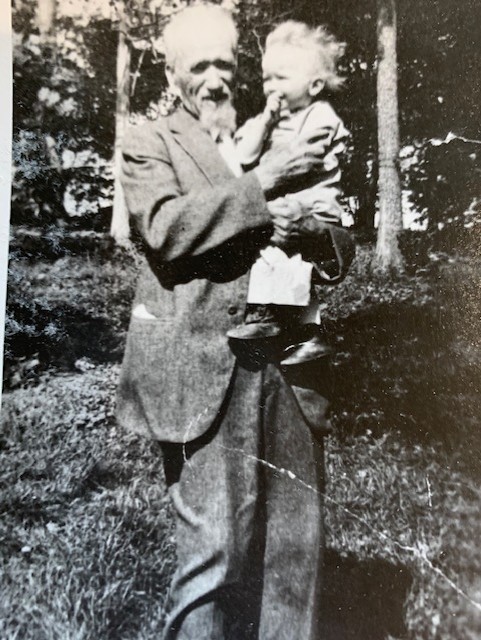
LEFT John Portmann / RIGHT: A picture of John’s mother Therese in 1950 with her mother Mary and father James. Therese had six brothers and sisters, who are also pictured.
Until he decided to take the plunge and investigate his ancestry, John Portmann always assumed he was Scandinavian.
John was handed over to the Sisters of Mercy in Phoenix (Arizona) as a baby and grew up in an adoptive family.
Throughout his youth, he never sought out information about his birth parents and family over fears of what he might find, but that changed a few years ago when he decided to take a DNA test.
READ NEXT - Kilkenny student court challenges their expulsions from Dundalk Institute of Technology
To his astonishment, the DNA test came back to state that his DNA was ‘100% Irish’.
Having never even really considered Ireland in his thoughts before, this changed everything.
Astonishingly, further research revealed that he also had huge links specifically to Kilkenny.
“My great-grandfather James Matthew Delehunty was born in Granger Parish, Kilkenny in April 1839,” he told Kilkenny Live.

Picture: James Delehanty (John's great-grandfather), who left Kilkenny age 9
“As a nine-year-old boy, he emigrated to the United States with his parents during the Great Famine.
“The family changed its name from Delehunty to Delehanty – no one seems to know why.
“The family settled near Minneapolis, Minnesota. My understanding is that the family chose this remote area because the United States was offering free land to settlers.
“The settlers created a town called Kilkenny, Minnesota and constructed a Catholic Church named after Saint Canice.”
John later discovered records that go even beyond his great-grandfather James.
“His grandfather Edmund Delehunty was born in Kilkenny on 18 May 1772,” John explained.
“Edmund and his wife Mary (birth unknown) had Michael Delehunty in Kilkenny in October 1796.
“Michael married Judith Shea, who was born in Kilkenny in 1809. Michael and Judith took their nine-year-old son James (my great-grandfather) to America (because of the Great Famine).”
Last October, John visited Ireland on a mission of personal discovery, and made Kilkenny a huge focal point of his visit.
“I went straight to Kilkenny,” he said. “I thought it was very beautiful and was surprised by the number of tourists milling about.
“I tried to see all the sights but remember particularly vividly walking toward a young man in the street.
“I visit London a few times a year and attend Mass at St Patrick’s Church (near Waterloo Station).
“Father Rory, an Irish priest, presides over what was apparently in the twentieth century a largely Irish parish. I remember Father Rory, who holds a Ph.D. in engineering, mentioning in a homily years ago the fact he has a twin brother in Ireland; the twin is also a priest.
“While walking down a tourist-strewn street in Kilkenny, I spotted this man and cried out, Rory! The man stopped and smiled.
“He indicated that he was not Rory and asked if I knew his brother. What a coincidence! This man, a priest at Black Abbey, was Father Rory’s brother.”
John explained that he can’t wait to return back to Kilkenny in 2025.
Unfortunately for John he also discovered, through the course of his research, that his birth father had died in 2005 and his birth mother died in 2019, just before he decided to start his search.
John has since been awarded Irish citizenship based solely on DNA and believes he is one of the first people, if not the first, to be awarded Irish citizenship in this way.
He continues to work as an author and professor of religious studies at the University of Virginia.
Subscribe or register today to discover more from DonegalLive.ie
Buy the e-paper of the Donegal Democrat, Donegal People's Press, Donegal Post and Inish Times here for instant access to Donegal's premier news titles.
Keep up with the latest news from Donegal with our daily newsletter featuring the most important stories of the day delivered to your inbox every evening at 5pm.